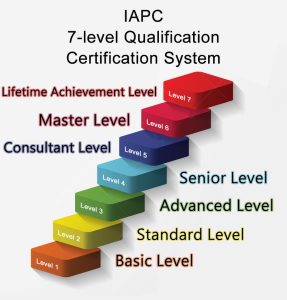Introduction:
In today’s educational landscape, the role of a special education teacher transcends traditional boundaries. With a growing emphasis on inclusivity and diversity, these professionals play a pivotal role in shaping the future of students with unique learning needs. This comprehensive guide delves into the realm of special education teacher jobs in the United States, advocating for inclusive education for all.
Understanding the Role:
Special education teachers are champions of inclusivity, catering to the diverse needs of students with disabilities. From crafting individualized education plans (IEPs) to fostering a supportive learning environment, their responsibilities are multifaceted.
Qualifications and Certifications:

To embark on this rewarding career journey, aspiring special education teachers typically require a bachelor’s degree in special education or a related field. Additionally, obtaining state licensure and relevant certifications is paramount to ensure compliance with educational standards.
Navigating Challenges:
While the rewards of special education teaching are abundant, it’s essential to acknowledge the inherent challenges. From limited resources to navigating complex IEPs, educators in this field must exhibit resilience and adaptability.
Embracing Inclusivity:
Inclusive education lies at the heart of special education teaching. By fostering a culture of acceptance and understanding, teachers empower students to thrive in diverse learning environments.
Career Growth and Opportunities:
The demand for qualified special education teachers continues to soar, presenting abundant career opportunities across the United States. Whether in public schools, private institutions, or specialized learning centers, educators in this field are poised for growth and impact.
Promoting Advocacy:

Advocacy is integral to the special education landscape, driving policy changes and fostering greater inclusivity. Through collaboration with parents, administrators, and community stakeholders, teachers advocate for the rights and needs of students with disabilities.
Nurturing Empathy and Compassion:
Beyond academic prowess, special education teachers embody empathy and compassion in their daily interactions. By fostering a supportive and nurturing environment, they empower students to overcome obstacles and achieve their full potential.
Leveraging Technology:
Technology serves as a powerful tool in special education, offering innovative solutions to address diverse learning needs. From assistive devices to educational software, leveraging technology enhances the learning experience for students with disabilities.
Building Collaborative Partnerships:
Effective collaboration is key to success in special education. By forging partnerships with fellow educators, therapists, and community organizations, teachers create a network of support to meet the unique needs of every student. And learn about the requirements, challenges, and rewards in this fulfilling career path.
Celebrating Success Stories:
Amidst the challenges, special education teaching is punctuated by moments of triumph and growth. Celebrating student achievements and milestones reinforces the profound impact of inclusive education.
Empowering Students with Disabilities:

Central to the ethos of special education teaching is the unwavering commitment to advocating for all students, regardless of their abilities. By fostering a culture of inclusion and empowerment, educators pave the way for a more equitable and accessible future.
Conclusion:
In conclusion, special education teacher jobs in the United States are not just careers; they are callings rooted in compassion, advocacy, and empowerment. As champions of inclusivity, these educators play a vital role in shaping a more equitable future for students with disabilities. By embracing diversity, fostering collaboration, and celebrating every success, special education teachers exemplify the transformative power of education.
FAQs:
What qualifications are required to become a special education teacher?
To pursue a career in special education teaching, individuals typically need a bachelor’s degree in special education or a related field, along with state licensure and relevant certifications.
How do special education teachers support students with disabilities?
Special education teachers craft individualized education plans (IEPs), provide tailored instruction, and collaborate with parents and specialists to meet the unique needs of each student.
What challenges do special education teachers face?
Special education teachers encounter challenges such as limited resources, navigating complex IEPs, and addressing diverse learning needs within a classroom setting.
What career opportunities are available for special education teachers?
Special education teachers can pursue opportunities in public schools, private institutions, specialized learning centers, and advocacy organizations, among others.
How can technology enhance the special education learning experience?
Technology offers innovative solutions such as assistive devices and educational software, which cater to diverse learning needs and promote accessibility in the classroom.
What role does advocacy play in special education teaching?
Advocacy is integral to special education teaching, driving policy changes and fostering greater inclusivity for students with disabilities.









